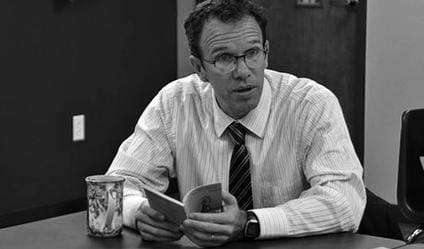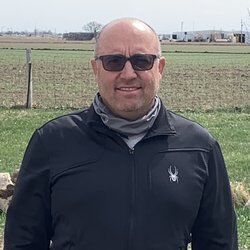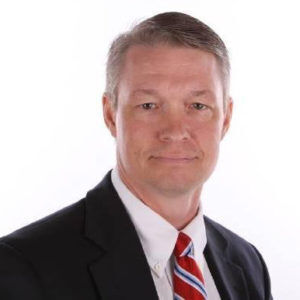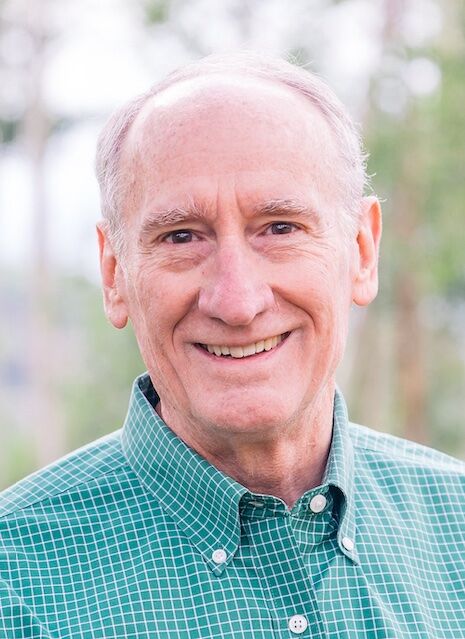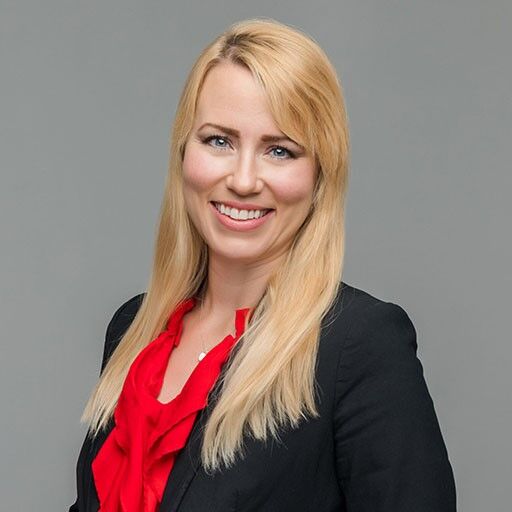Hild: Is Germany assuming America’s mantle as a haven for refugees?
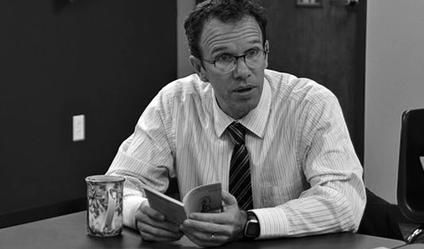
Is Germany becoming the new America? The American failure in the Syrian refugee crisis places Germany at the head of those defending American principles. We don’t even lead from behind anymore: The clear message from Congress and 22 American governors that Syrian refugees, fleeing terrorism and their failed states, are not welcome in the United States, undermines the one chance of building strong coalitions in the Muslim world — namely, the treatment of peace- and freedom-seeking refugees as men and women with the unalienable rights to life, liberty and the pursuit of happiness.
This failure of American leadership — with Gov. John Hickenlooper as a laudable exception — sheds light on what we Americans have lost and what the Germans stand to gain at this dramatic moment. I am an immigrant myself, and when I became an American citizen and abjured allegiance to “foreign princes and potentates” (Gerhard Schröder, at the time), I had to turn in my German passport. I would have rather become not just a German-American but also a Deutsch-Amerikaner, but the latter concept, the hyphenated German, has never taken a legal hold in my fatherland. Here in the United States, we are full of hyphenated Americans, and I don’t see a reason why well-vetted Syrian refugees would not only embrace being Syrian-Americans but also twitter home much needed praise of their new, free and dignified lives in their adopted country. Is there a better way to win the hearts and minds of Muslims around the world?
While our leaders want to close the borders to a total of 10,000 certified terror victims (what else is a Syrian running from Assad and ISIS?), Germany confronts the most significant identity crisis of my generation, and I have been deeply moved by how maturely Germans are struggling with their ideals and their reality in facing the tidal wave of refugees flooding across their borders (up to 10,000 per day). From president Gauck and chancellor Merkel to public intellectuals like Navid Kermani and friends like Salah Maraqa, an entire country is exorcizing its xenophobic demons to present a humane and welcoming face to the “tired, poor, and huddled masses yearning to breathe free.”
Almost overnight, Germany has turned into an Einwanderungsland, a land of immigrants, Gauck announced this summer. Germany “can do it,” Merkel declared in a rare moment of inspiration and political risk-taking. Germany crowned the German-Iranian author Navid Kermani, a Muslim who loves Goethe and the German constitution, with its highest literary honor. Germany is creating a Willkommenskultur in small and large towns, where artists and community leaders like Salah Maraqa (a Jordanian-German) are performing and speaking to open the hearts and minds of their fellow citizens to the plight of the millions of refugees who see Europe, and particularly Germany, as a promised land.
Of course, there are many Germans who advocate for closing the borders, and the logistical problems of hosting, registering, vetting, training, and assimilating asylum-seekers are overwhelming the institutions and communities charged with these extraordinary tasks. However, even post-Paris, German politicians so far have shielded the ever-growing number of refugees (up to 1 million in 2015 alone).
Of course, Germany can do well by doing good, as it needs young men and women who can fill the open jobs in its economy to maintain Germany’s economic growth and pay the pensions of its aging population.
Of course, Germany’s economic strength and the lack of an organized right-wing challenge to Merkel & Co. does provide a unique scenario, in Europe at least, in which to act on Germany’s founding principle, inscribed as the first sentence in its post-war constitution, that the dignity of man is inviolable.
Given these pragmatic realities, it is Germany’s twin challenge to stand firm against those who literally and verbally attack refugees and the very idea of welcoming others into the German bloodstream, as well as to recognize the historic moment when ideals and interests fortuitously coincide. Germany’s current struggle to define itself anew ought to remind us that mastering the challenge of making one out of many shaped our remarkable success as a nation of immigrant-Americans.
In a rare moment of collective self-examination, Germany has arrived at a fork in the road as it self-consciously wrestles with the events that have forced themselves upon it: Will Germany become the new “city upon the hill” and change not just its face but its genetic make-up, or will it give in to the lesser angels of its nature and shrink its horizon to the outline of its borders?To this German-American in Colorado, Germany seems poised to step up to this historic challenge. From the top down and the bottom up, there are many indications that today’s Germany can become a new America: a light to the world and a destination for those who seek a better life. I have never been prouder to be a Deutsch-Amerikaner.
Florian Hild grew up in Germany and has lived in the United States for more than two decades. He became an American citizen 10 years ago. He is a teacher and former principal in Fort Collins. Last month, he read the U.S. Constitution word-by-word with eighth-graders at Ridgeview Classical Schools.


